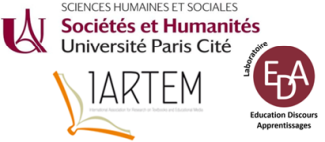The research builds upon a prior study conducted by SGS (The Student Grant Competition) in 2022, and is part of the dissertation, which delved into the distinctive features of teaching and learning resources. This investigation specifically explored how the resources could be implemented in the curriculum, considering the learning strategies employed by tertiary education students and the development of critical thinking skills. The focus was on materials utilized in pedagogical subjects, aiming to identify elements that could prompt students to activate their critical thinking within a given resource. The findings from the initial project highlighted the necessity for a more in-depth examination of the dynamics involved in learning from text, the learning strategies employed by tertiary students, and how students actively engage with critical thinking elements within the learning process.
The objective of the current research is to pinpoint the characteristics exhibited by texts tailored for tertiary students in education courses. The research seeks to articulate the potential these texts hold for fostering critical thinking. This potential will be further explored using an eye-tracking device to set students' strategies for learning from specific texts incorporating critical thinking elements. The investigation aims to determine whether and how these strategies align with a constructivist approach to learning. Attention will be devoted to the structural components of both visual and textual aspects of selected instructional resources, particularly focusing on textbooks and materials.
Problem question and project objectives
The main research question deals with the characteristics of the instructional texts designed for tertiary level students in education courses, what they exhibit and what potential they provide for promoting student's critical thinking.
Other specific questions are as follows:
1) Which instructional resources are considered as essential study texts in education-oriented undergraduate courses with a focus on education?
2) What is the didactic structure of the components (visual and textual) in the core study literature of the pedagogically-oriented courses in an education-focused undergraduate program?
3) Do the analysed educational resources provide potential in the form of developing students' critical thinking skills in their learning from text?
4) What strategies do students in undergraduate education-focused courses use in learning from pedagogical texts?
Expected outcomes and preliminary results
Preliminary results indicate some interesting facts about what materials students learn from, what they strategies they use and whether they are familiar with the concept of critical thinking. However, the potential of learning materials for the development of critical thinking needs to be more deeply identified.
This will be followed by final report with results and recommendations for academia and the development of teaching materials with a detailed analysis of the characteristics of educational texts.
We would like to identify the potential of learning materials for developing critical thinking skills and recommend optimizing the didactic structure and promoting strategies to foster critical thinking in education students.
Methods
The research methods will involve didactic and content analysis of the texts. In-depth semi-structured interviews with students will be conducted, followed by an eye-tracking survey to gather additional insights from the respondents. The project aspires to offer profound insights into the role of critical thinking in the education of future teachers and aims to contribute to the enhancement of the quality of course materials.
References
Bezanilla, M.J., Nogueira, D.F., Manuel Poblete, M., Galindo-Domínguez. H. (2019). Methodologies for teaching-learning critical thinking in higher education: The teacher's view. Thinking Skills and Creativity, vol 33, 100584. https://www.sciencedirect.com/science/article/pii/S1871187119300380
Horsley, M., Knight, B., & Huntly, H. (2010). The role of textbooks and other teaching and learning resources in higher education in Australia: Change and continuity in supporting learning. IARTEM E-Journal, 3(2), 43–61. https://doi.org/10.21344/iartem.v3i2.787
Huber, C. R., & Kuncel, N. R. (2016). Does College Teach Critical Thinking? A Meta-Analysis. Review of Educational Research, 86(2), 431-468. https://doi.org/10.3102/0034654315605917
Richardson, John T. E. (2005). Students' Approaches to Learning and Teachers' Approaches to Teaching in Higher Education. An International Journal of Experimental Educational Psychology, vol 25 (6), 673-680. https://www.tandfonline.com/doi/full/10.1080/01443410500344720

 PDF version
PDF version
